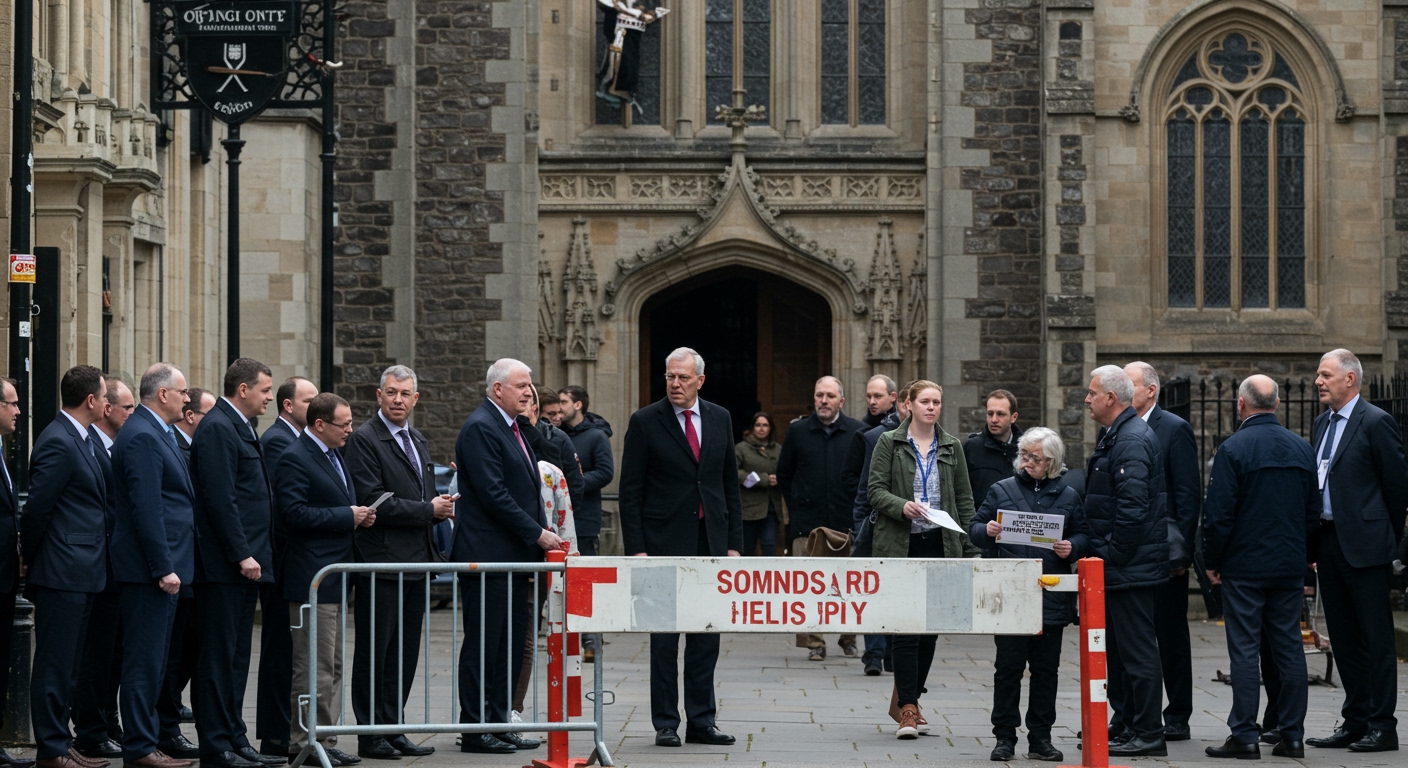LONDON, UK – The Bishop of London, the Rt Revd Sarah Mullally, issued a grave warning on Friday, June 20, 2025, stating that the House of Commons’ decision to advance proposed legislation on assisted dying represents a significant “risk to the most vulnerable people in our society.”
Speaking shortly after Parliament voted to progress the Terminally Ill Adults (End of Life) Bill, Bishop Mullally, who holds the influential position of lead bishop on health and social care for the Church of England, expressed profound concern over the direction of travel she perceives this step indicates.
Parliamentary Progress and Ethical Concerns
The vote in the House of Commons on June 20, 2025, marked a crucial procedural step forward for the Terminally Ill Adults (End of Life) Bill. While not final passage, the progression of the bill signifies parliamentary willingness to dedicate further time and scrutiny to the complex and deeply divisive issue of assisted dying.
The legislative proposal seeks to change the existing legal framework surrounding end-of-life choices, a topic that has long been the subject of intense ethical, moral, and legal debate within the United Kingdom. Proponents of such bills often cite compassion and individual autonomy for those suffering from terminal illnesses, while opponents raise concerns about potential abuses, the adequacy of safeguards, and the inherent value of life.
It is within this charged context that Bishop Mullally’s comments carry particular weight. As the lead bishop responsible for health and social care matters, her pronouncements often reflect the Church of England’s considered theological and ethical stance on issues directly impacting human well-being and societal values.
Warning of Risk to Vulnerable
Central to Bishop Mullally’s statement was the assertion that the progression of the bill poses a direct “risk to the most vulnerable people in our society.” This concern is frequently voiced by opponents of assisted dying legislation, who argue that individuals facing terminal illness may feel pressured, either overtly or subtly, to end their lives rather than become a burden on families or state resources.
The ‘vulnerable’ in this context could encompass a range of individuals, including the elderly, those with disabilities, people suffering from mental health conditions alongside physical illness, or those experiencing loneliness and lack of adequate palliative care. Critics like Bishop Mullally argue that a legal pathway to assisted dying, regardless of the intended safeguards, could disproportionately affect these groups, potentially eroding societal commitment to caring for those in their final stages of life.
Her warning underscores a fear that the focus might shift from providing comprehensive care, support, and pain management to offering assisted death as a solution, particularly if palliative care services are not universally accessible or adequately funded.
A Step Towards ‘Culture of Death’
Adding further emphasis to her concerns, Bishop Mullally characterized the parliamentary step as “another step towards the culture of death.” This phrase is a powerful theological term, often associated with religious critiques of practices perceived to devalue human life, such as abortion or euthanasia.
In using this language, the Bishop articulates a view that legalizing assisted dying is not merely a clinical or individual choice issue but contributes to a broader societal shift away from an unconditional reverence for life, especially the lives of those who are suffering or dependent.
The concept of a “culture of death” contrasts sharply with a “culture of life,” which emphasizes protecting life from conception to natural death and providing robust support systems for the vulnerable and the ill. Bishop Mullally’s use of this term highlights the deep moral and philosophical chasm that divides proponents and opponents of assisted dying legislation.
Looking Ahead
The progression of the Terminally Ill Adults (End of Life) Bill means that it will now proceed to further stages of debate and scrutiny within Parliament. These stages will involve detailed examination of the bill’s clauses, potential amendments, and further opportunities for input from various stakeholders, including medical professionals, patient advocacy groups, religious organizations, and the public.
Bishop Mullally’s stark warning on Friday, June 20, 2025, serves as a significant intervention in this ongoing debate, bringing the ethical concerns regarding vulnerability and the value of life firmly to the forefront as the proposed legislation continues its journey through the parliamentary process.
Opponents of the bill, buoyed by such high-profile interventions, are expected to intensify their lobbying efforts as the bill moves towards its next readings and committee stages, seeking to highlight the potential risks they believe it poses, particularly to the most vulnerable members of society, echoing the precise concerns articulated by the Bishop of London.





